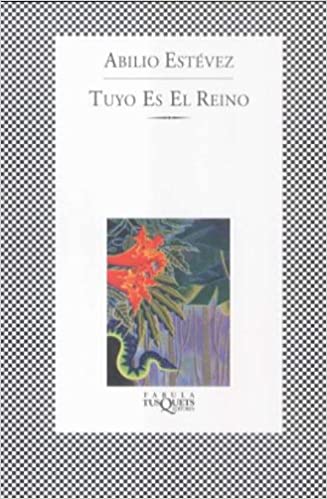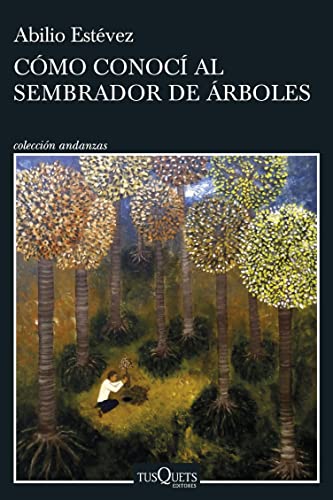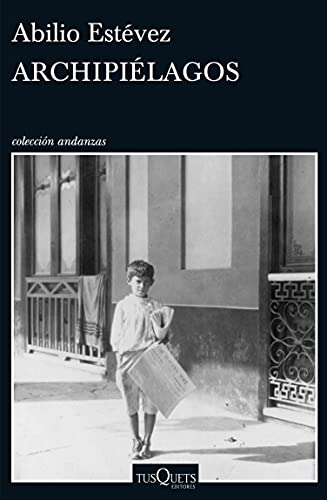Abilio Estévez conforms, in his novelistic aspect and together with his compatriot and contemporary Leonard Padura, a narrative tandem that transforms Cuba into the setting for a multitude of plots of various kinds.
In the specific case of Abilio, a hint of homesickness surrounds everything. From its most historical constructions to its purest fictions. Everything in his work has a claim component that can point to the political but is essentially humanistic.
It usually happens with writers who share a lyrical vein with more prosaic aspects. The result is a formal brilliance that also serves the cause of the emotional, the careful drawing of his characters in their most intimate plots and in their contexts. Estévez can fabulate and land in the mundane from one book to another; or even from one chapter to another. Because that is what the plausibility of the characters is based on to make them vivid and complete in all their traits, from the emotional compensated with the ideological to even the dreamlike...
Top 3 recommended books by Abilio Estévez
Yours is the kingdom
As Michael Stipe would say as REM frontman, "it's the end of the world as we know it and I feel fine". Good old Stipe wasn't the only one who could look forward to the end of the world with such joy as to dedicate the lively song to it. Some sort of sectarian apocalypse is intuited in this book. But deep down, everything is taking the form of an allegory, a metaphor or even a parody towards the second spiritual opportunity, towards the truest journey to the afterlife for everyone...
On a farm called La Isla, a short distance from Havana, lives a small community over which an elusive threat looms. There, in an ancient mansion, in a place known as the Más Acá and surrounded by exotic and exuberant vegetation to which they seem to want to order ghostly statues and fountains, the members of a family are as if waiting for an event that will break for them. always its weighted inertia.
Meanwhile, like warning signs, small incidents, apparently innocent, keep happening in the labyrinth of an imprecise present, made of memories, evocations and desires, while the atmosphere of a turbulent tropics electrifies the inhabitants of La Isla and leads them, according to the free and capricious will of an omnipotent being, towards an end that was actually announced. Who is this supreme being? Could he have sent them the mysterious young man from that isolated area called the Afterlife?
How I Met The Tree Planter
No stateless person is as stateless as a mainland islander inland. Because there are no more paradises than the certain ones lost, but the islands are the last possible paradises in the merely geographical. This is how a powerful telluric claim towards people like Abilio is understood. And from there comes this fondness for the intrahistorical stories of those who remained and those who remained, in any case of those who still inhabit as recurring ghosts that come and go like inexhaustible waves on the paradisiacal beaches or against the misty cliffs.
Although all the stories gathered here have been written outside of Cuba, it is important to remember, however, that they took shape in that other inexhaustible Cuba that Abilio Estévez, for better or worse, carries with him. And these stories want to respond to the secret of a country in danger of extinction.
His intention is to turn around the history that Cubans have lived, observe it from another point of view, a distant place that clichés and praise do not reach, and try to understand the vortex into which the island has become. Stories that are testimonials of a failure. Who want to attest to the desire to live even in the midst of so much frustration and sinking. Its protagonists have lost their memory or it turns out that they remember too much —the other form of forgetting. They are characters who create a parallel reality to support the pettiness of everyday life. That in the midst of an incomprehensible disaster they intend to resist.
Archipelagos
The history of Cuba does not escape that populist tradition towards dictatorship extended throughout much of the XNUMXth century throughout Latin America (and even today if you rush me in certain countries...) The question is that such political systems generate convulsive social spaces where literature it must rescue the intrahistoric towards the ultimate reality of each nation. In this work, Abilio Estévez draws us known realities of a time turned into vivid human representations.
August 1933. The events that later became known as "The Revolution of Thirty" took place in Cuba. The entire island against an authoritarian president: General Gerardo Machado. When the situation became untenable, the president fled by plane to the Bahamas.
The day before, a boy named José Isabel (who, now old, writes the story of the three days prior to Machado's escape) witnesses the murder of a young man in a swamp near his home. José Isabel lives on the outskirts of Havana and a series of characters live with him in a hamlet preparing for the consequences of the end of Machadato and, at the same time, recreating in their memory their lives since the 95 War, against Spain, to the present of 1933.



